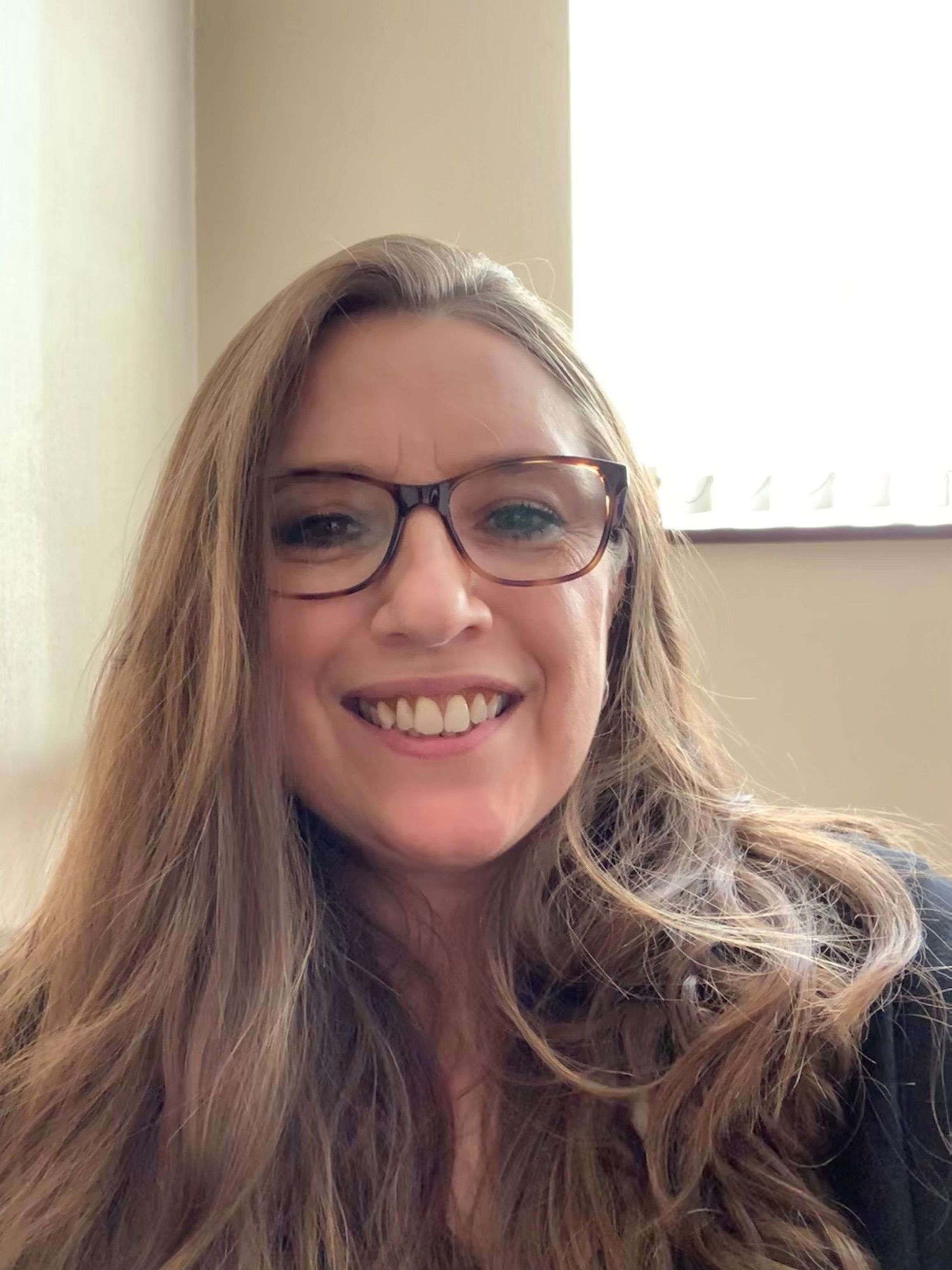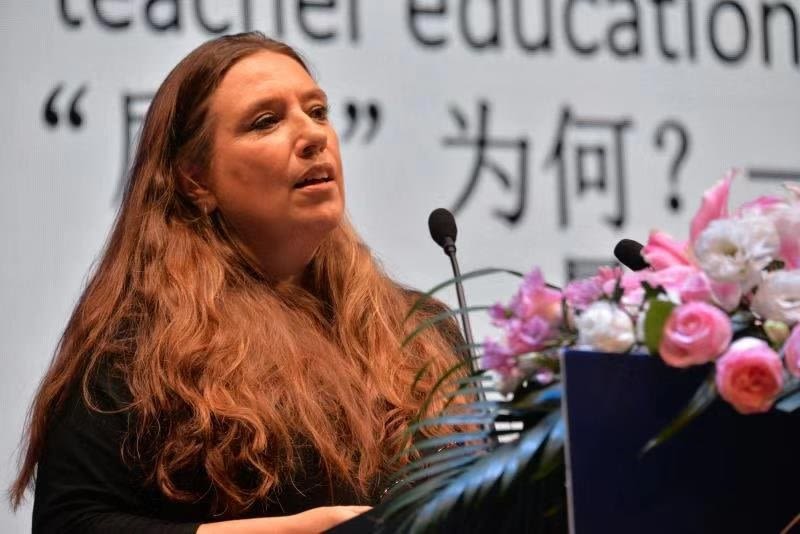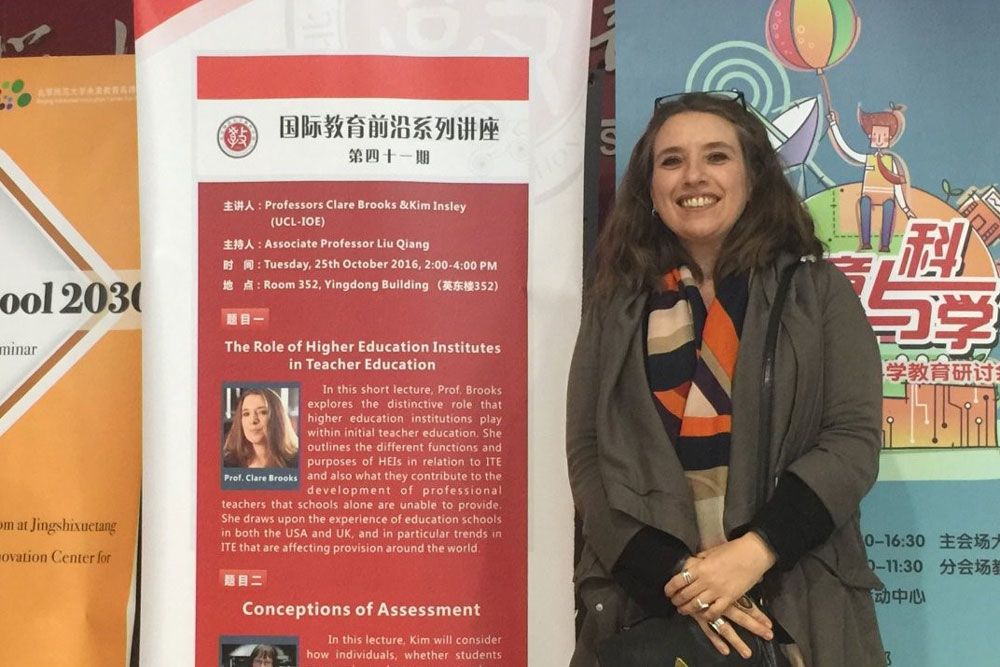

Clare Brooks appointed Professor of Education

Clare Brooks, a leading authority on teacher education whose work emphasises its wider social context, impact and purpose, has been appointed to a Professorship in Education at the University of Cambridge.
Professor Brooks taught Geography for several years, working in London and briefly in the US, before moving on to an academic career at the Institute of Education (IoE), London, where her numerous leadership roles included Head of Department, Head of Initial Teacher Education (ITE) and Pro-Director for Education.
Her research focuses on the education and professional development of teachers; especially in ITE. She is particularly interested in how teacher education attends to ‘bigger picture’ questions, not just in terms of policy, but also with reference to its social and ethical consequences.
Some of her recent publications explore the meaning of high-quality teacher education, how to develop effective ITE programmes internationally and at scale, and the impact of ITE policy on the fair distribution of opportunities among the communities it purports to serve.
Brooks will join Cambridge’s Faculty of Education on 1 August. She does so amid a well-documented teacher recruitment and retention crisis in England, and significant reforms in ITE following a government ‘Market Review’, which met with criticism from across the sector.
Against that backdrop, she hopes to further establish Cambridge as a first port of call for research-informed thinking on teacher education. The Faculty of Education is home to the University’s Primary and Secondary PGCE programmes, and other teacher education courses, all of which are shaped by, and inform, its wider scholarship and research.
“I am really excited about the opportunity to further connect ITE with research at Cambridge,” Brooks said. “The challenges in the sector are, in many ways, inviting us to think differently about teacher education. Universities such as ours should be at the forefront of that process.”
As a Geography teacher, I felt I was helping children to understand a little about their own experiences, but also something about each other.
These ambitions would probably have surprised Brooks’ younger self. She was the youngest of four children from a working-class family in Bristol, and the first to study A’levels. As a student of Geography in London, she was “absolutely adamant that I did not want to be a teacher”.
She changed her mind after graduating into the recession of the early 1990s and finding work in a pub and off licence. “I was bored off my box at work one day when I found a profile of a teacher in a magazine,” she said. “I realised it sounded like exactly the sort of meaningful career I wanted. I started to wonder if I had written it off a little too readily.”
After a positive work shadowing experience at a local school, Brooks completed her PGCE with IoE, where she would later also gain Masters and PhD qualifications. She spent eight years teaching at Stoke Newington School, Hackney, where she relished being part of a vibrant, diverse community.
“If you are teaching Geography in a school where 120 different languages are spoken, it gives the subject a whole new meaning,” she said. “I felt I was helping the children to understand a little about their own experiences, but also something about each other.”

Instead of pursuing school leadership roles, and after a year working in Phoenix, Arizona, on a teacher exchange programme, Brooks chose to develop her career in academia. She entered IoE on a short-term tutoring contract and ended up staying for two decades.
Her research, which was initially about teacher development in Geography, soon evolved into broader expertise on teacher education. As it did, her appreciation of the social mission at the heart of ITE also expanded in scope.
“As a teacher, you see your role as influencing a particular group of children,” Brooks said. “Early on at IoE, I felt what we were doing was providing teachers for London. When I became Head of ITE, I saw that we were doing something greater, with national and international reach and importance, and with a significant level of moral responsibility attached.”
Specifically, she positions ITE as: “being focused on educating the very best teachers we possibly can”. “That intersects closely with policy and it is vital that it takes into account supporting research,” she added. “During my time at IoE, I gradually began to realise how ITE was dealt with differently in different places. Some of it really frightened me, because it was founded not on research, but on some very naïve assumptions about what a good teacher – and a good education – look like.”
We really need a clear definition of what it means to think, perform and act with integrity as a teacher.
Some of Brooks’ recent scholarship reflects these concerns. In a recent, co-authored paper, she emphasised the need for a “signature pedagogy” that articulates what high-quality ITE entails. It is clear, she suggests, that there is no single ‘right’ way to educate teachers. Rather, novice professionals should be equipped with “a suite of possibilities” that prepare them to work with different learners and in an ever-shifting educational landscape.
She is concerned that too much teacher education has relied on “a tacit understanding” of that principle. That, she suggests, has left the door open to the imposition of limited one-size-fits-all models of teacher education on the sector – notably the recent ITE reforms – because it has enabled policy actors to claim that the sector needs to get its house in order.
“We really need a clear definition of what it means to think, perform and act with integrity as a teacher,” Brooks said. “A lot of our current policy focuses on the performance aspect. Its underlying assumption is that we all know what a good teacher looks like, but that’s a surface-level understanding of what a good teacher is. It’s equivalent to saying you know what a good lasagne looks like. It doesn’t mean you know how to make one.”
Ever the geographer at heart, Brooks remains fascinated by global perspectives on education. She has researched how to develop high-quality, large-scale teacher education programmes worldwide; a task that involves both discerning and balancing principles of universal efficacy with local need. There is, again, a social mission at stake here: UNESCO has estimated the world will need 68.8 million teachers in order to meet the UN Sustainable Development Goal of achieving inclusive, quality education for all.

She also sees international dialogue on effective teacher education as fundamentally healthy for the sector. Global interactions influence much of her work. Colleagues from Australia and New Zealand, for example, have led her to re-evaluate what ‘decolonisation’ might mean in British ITE precisely because of the contrasts with the experience of bicultural nations that were once both coloniser and colonised.
The international dimension to her research also overlaps with an interest in spatial justice: the equitable distribution of resources and opportunities regardless of location. Access to teacher education is, she points out, itself a spatial justice issue.
Later this year, she will be undertaking fieldwork in the favelas of Rio de Janeiro, where new teachers have had limited access to schools since the COVID-19 pandemic, even if they hail from those communities.
Her concern with spatial justice also applies closer to home, however. There is, for example, mounting alarm about ITE ‘cold spots’ in England; regions that are being left with minimal teacher education provision following the recent reforms. Brooks argues that this is partly because the reforms assume a “spatially neutral” landscape, where teacher education does not need to take account of local needs or school diversity.
The point aligns closely with her broader concern with what we understand teacher education to entail. Brooks has written about the important balance in teacher education between “repertoire” (the strategies, techniques and behaviours teachers acquire in order to operate effectively) and “reservoir” (the knowledge and ideas they accumulate through experience, theory and research).
Both matter greatly, she says, but a skewed emphasis on, and limited conception of, repertoire lies at the heart of many current problems in ITE. This is one reason why she is so keen, in her new role, to cultivate approaches to teacher education that are rooted in meaningful exchange between research and practice.
“An over-genericised form of teacher education will not adequately prepare teachers for different contexts,” Brooks said. “If we want teachers to be effective in Morecambe or Truro as well as London, we need to move beyond the idea that ITE is simply about learning the same immovable set of routines and concepts. That approach will give us technicians. A thriving education system relies on a teacher education system that cultivates true professionals.”
Read more about Clare’s work at: https://www.clarebrooks.com/
Images in this story provided by Clare Brooks.